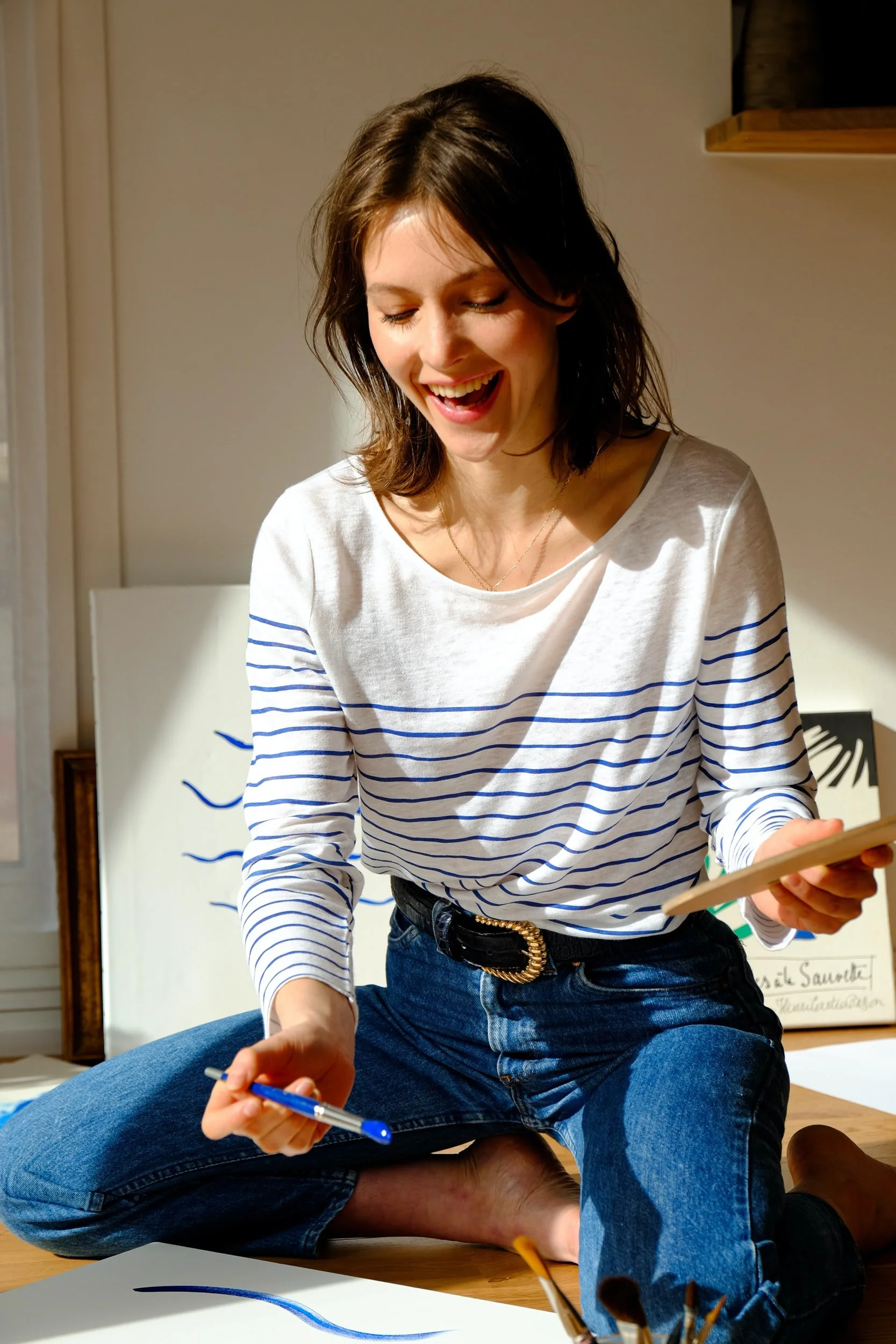“Everything you need to heal is already within you. You do not need to seek outside validation. The key to your healing is being able to return to believing in yourself.”
Learn how to do more of what you love by listening to stories from other yoga teachers, healers, and coaches about how they first got started.
Discover what they did to first make money, how they actually got started, and how they overcame their struggles like fear and burnout along the way.
Today we hear from trauma researcher & yoga teacher , Dr. Megan Kirk Chang, who you heard from in Ep 208: What Is Trauma and What Does It Mean To Be Trauma-Informed? .
I loved how authentically Megan shared about her experience in doing what called out to her. Her story showcases that doing what you love can still have hard parts, but it’s a different kind of hard than when you’re headed in the wrong direction. I used to think that once you figure out what you love doing (or as I used to refer to it as figuring out your “purpose” (so much to say about that but I’ll save it for a daily inspiration episode)) then a big rainbow lights up the whole sky and I would skip into a beautiful sunset, never having to experience a hard part again.
Sort of…and also not really at all! You’re no longer swimming against the current but now you’re being stretched in a different way so that you can grow. Megan’s examples of how the trauma research program she was in was so hard that she wanted quit and how she had to choose to listen to herself than societal norms are examples of these hard parts that help us grow.
Listen to discover:
How a major experience in Megan’s life showed her what kind of work she wanted to do in the world
Example of what it looks like when what you really want goes against societal norms and how to choose the inner voice instead of the “should”
Ideas for how to get through the hard parts
About Dr. Megan Kirk Chang
Dr. Megan Kirk Chang is a clinician scientists in the field of clinical mental health. Her intervention-based research explores the impact of mindfulness-based programs on cultivating resilience and growth after extreme exposure to stress, burnout, or trauma. Megan's work blends cognitive neuroscience, trauma-informed yoga and meditation, and empowerment coaching to help organizations and survivors reclaim their mind-body connection, return to a sense of aliveness, heal their nervous system, and release limiting beliefs. Megan recently graduated with her PhD from York University where she launched the first registered clinical trial in Canada to investigate an integrated CBT, Mindfulness and Yoga intervention for young adults with PTSD and used new wearable health technologies to capture the changes in autonomic function during mindfulness.
Healing For Others What We’ve Healed Within Ourselves
Megan’s story teaches us that when we take a heart-centered approach, we can find our life’s purpose. The seeds of Megan’s current path were planted long ago and came to fruition when she realized her calling: helping people with what she herself had struggled with.
Megan’s childhood trauma and her husband’s terrible accident caused her to experience trauma which eventually led to a self-healing journey. With this knowledge and passion, she found her life’s purpose in helping people with what she’s had to struggle with.
See below for more key nuggets and takeaways.
Subscribe to Curious Monki
iTunes | Spotify | Libsyn
Key Nuggets: Doing What You’re Meant To Do
1. What is your calling right now? [05:10]
I’m in a new season as Dr. Megan Kirk Chang. I love bringing voice to topics that make people uncomfortable. My calling is in advocacy speaking and bringing voice to issues and populations that typically get overlooked.
2. What was life before you started learning and speaking about trauma? [07:00]
I was working at a secure, permanent, with benefits, hospital job when my then-fiancee was injured at a football match. We rushed him to the hospital, where he needed emergency spinal cord surgery.
The experience fundamentally altered the way we do life, and it’s the reason I do the work I do. Even though I didn’t witness the event, I was really struggling with symptoms such as intrusive thoughts. I realized it had actually retriggered a childhood trauma. This experience made me want to learn more about trauma and trauma-informed care.
4. Did you have a formal plan or idea for how long you’d do this? [13:40]
Not really. I quit my job and was accepted into the Ph. D. program at York University with a clinical psychologist. In collaboration with him, I eventually started to work with young adults struggling with PTSD. Through that, I found my own healing.
My research showed me the resilience and growth of every single person were palpable. Trauma and PTSD shouldn’t always be seen as a deficit. There’s so much growth and passion that our hardships can lead us towards.
5. What was one time when you really wanted to quit? What helped you keep going? [17:45]
As much as I’m on the other end now and I’m elated, it was grueling, exhausting, and emotionally taxing work. Learning how to navigate that and the complexities of being a student was challenging. There were lots of days I didn’t think I could finish. What helped me was not to look six months down the road but ask myself, what can I do today?
7. What’s the best thing you did that helped you create this life? [20:15]
Not listening to societal norms or pressures. Connecting to the inner nudge that said it’s ok to quit your stable job. The best thing I’ve done is spend time getting to know myself and find what matters.
10. What do you do to check back and make sure that this is still the path for you (i.e., that helps you decide that this is all worth it? [22:30]
I have a very consistent mindfulness practice, such as yoga and walks in nature. It didn’t naturally fall in my lap, and it still ebbs and flows, but what helps me check back is telling myself I’m worth my own investment. The moment I stop giving myself permission to connect is usually when things start to spiral.
11. What has been one of your biggest lessons so far? [23:50]
I’m worthy of experiencing joy and allowing myself to enjoy this life. Even in the midst of feeling unresolved in my healing or in the midst of struggle, I don’t have to wait until the struggle is clear to start living. I can find joy today.
12. What is one nugget of wisdom that you would share with fellow seekers who are also on this journey of growth and transformation?
Everything you need to heal is already within you. You do not need to seek outside validation. The key to your healing is being able to return to believing in yourself.
11. What is a book, podcast, person, or teacher you would recommend? [22:30]
Sarah Blondin on Insight Timer and her book Heart Minded: How to Hold Yourself and Others in Love.
Her being and her essence have just been a game-changer for me.
Resources:
Sarah Blondin on Insight Timer
Book: Heart Minded: How to Hold Yourself and Others in Love
CONNECT WITH MEGAN:
Website: www.healmytraumaimprint.com
Instagram: @drkirkchang
Email: info@healmytraumaimprint.com
Quotes:
“Through that, I found my own healing. It was the most incredible, heartwrenching, rewarding five and a half years of research that I did.” - Megan [12:08]
“Trauma and PTSD shouldn’t always be seen as a deficit. There’s so much growth and passion that our hardships can lead us towards.” - Megan [16:43]
“Let’s not look six months down the road, but what can I do today?”- Megan [18:33]
“The best thing I’ve done is really spend time to get to know myself.” - Megan [21:20]
“What helps me check back is telling myself I’m worth my own investment.” - Megan [22:03]
“I don’t have to wait until the struggle is clear to start living. I can find joy today.” - Megan [24:25]
“The key to your healing is being able to return to believing in yourself.” - Megan [25:10]
Subscribe to Curious Monki





















